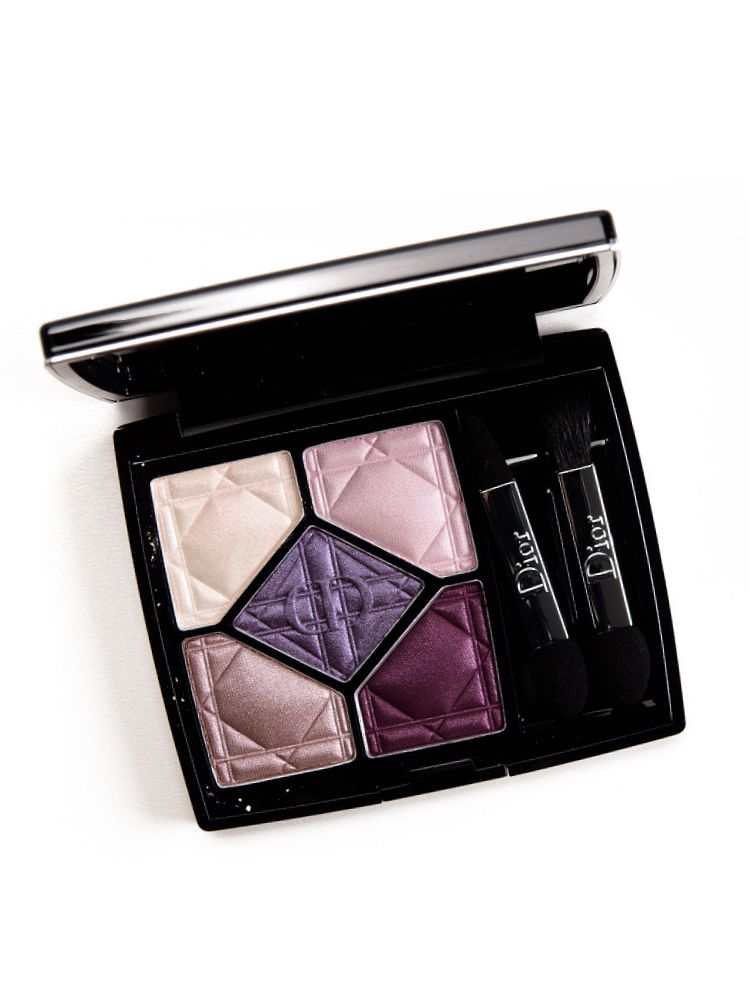
- POPSUGAR Australia
- Fitness
- Why Can’t I Stop Spending Money? I Asked a Financial Therapist, and Things Got Awkward
Why Can’t I Stop Spending Money? I Asked a Financial Therapist, and Things Got Awkward

When I’m stressed, I shop. Feel overwhelmed at work? Manifest competence with $100 worth of complicated planners. Hangxiety? Spend $300 on organic groceries at Harris Farm Markets. I am a wellness queen. Plus, everyone at Harris Farmers Markets is hot. Maybe I’ll find someone to split the rent with! In my bedroom full of second-hand designer clothes that cost more than my weekly went, 50 planners, and 47 Pat McGrath eyeshadow palettes.
Not even the hottest person at Harris Farmers Markets can come into my room, especially not the hottest person.
I also don’t like looking at money. The little yellow Commbank icon on my iPhone fills me with anxiety. I don’t chase invoices for freelance work for months. I never file my expenses at work. I race through my tax return each year like it’s a Gone in 60 Seconds challenge.
Most bizarrely, I find people talking about saving money actively annoying, whether it’s Quantas points or… filing their tax return in an intelligent way. It makes me bored and vexxed.
Turns Out I Can’t Save Money
In 2022, rent hikes, recessions, and a news cycle that repeatedly told me women took steeper pay cuts during COVID than men, earn $1 million less in super over their careers and were more likely to become homeless prompted me to think about saving.
There was also the fact that while I’d passively saved close to $15,000 during two years of lockdowns, within three months of reopening, I’d disappeared it.
And I didn’t know where it had gone. Other than eating out, ordering in and having a new outfit for every social excursion. I was finding myself tapping into my Big Savings to pay for rent and groceries.
I’m 31, single and renting. So I decided to learn how to save money. And I realised I couldn’t. In fact, when I was trying to save, I spent more.
When I was saving, I felt angry all the time. Invites to restaurants or holidays, things I’d usually take up or knock back with a “hell yeah” or “sorry, can’t” suddenly felt like personal insults. This anger and resentment somehow made me spend more. I’d go to a bar to order a happy hour beer, and suddenly I was ordering a $25 espresso martini. Espresso martinis are basically vodka red bull for grown-ups. It was like an irate toddler had taken over my body.
According to a report by Accrue last year, I’m not alone in experiencing “financial dysmorphia.” Only 5% of gen Z and millennials said they “never” knowingly spend beyond their means. Young people said they were so overwhelmed by the concept of saving money they consistently spent beyond their means and relied on credit and buy-now-pay-later apps.
“Living beyond your means” sounds like criticism, but when your means are tiny, it’s an easy thing to do.
In 2023, there has been a 26,000 increase in calls to Lifeline and a 49 per cent increase in searches for solutions to financial stress and homelessness by crisis support workers.
There’s never been a worse time not to know how to save money. Which is why I found myself a few months ago (yes, I have also been avoiding writing about saving money) sitting in a meeting room in my office, interviewing Australia’s leading financial therapist Jane Monica Jones.
Why I Can’t Stop Spending Money?
Saving Money vs Survival and Emotional Regulation
@nastyaswan Replying to @khyleeanton see you in the part 2 #sephorahaul #beautyhaul #skincarehaul ♬ original sound – anastasia
Firstly, Jones says I’m not the only person who blew through their savings during COVID. She mentions the Illion Consumer Spending Report, which showed that 68% of people who drew down on their super during COVID didn’t use it to pay bills. They spent it on alcohol, takeaway food and online shopping.
Referring back to the seemingly counterintuitive behaviour outlined in the Ilion report, Jones explains why we spend more when stressed, angry, scared, and excited. “When we’re under threat, our heart is racing, and we’ve got the adrenaline pumping,” it’s uncomfortable and unpleasant. We look for relief as soon as we can.
Shopping is one socially acceptable form of relief that, if the Ilion report is to be believed, we turned to frequently during COVID.
“Shopping engages our old nervous system. We love hunting, and what happens when we hunt is dopamine starts to kick in,” Jones explains to me. When I’m hours into a dissociative scroll through Net-a-Porter or up to my arms in second-hand designer wears at SWOP, turns out I’m engaged in a similar activity to my ancestors taking down woolly mammoths to feed their family for the winter. Importantly, this surge in dopamine crashes when hitting purchase (or taking down a mammoth).
Spending gives us the same release of pent-up energy as an orgasm or particularly intense workout — and is way easier to do from our desks.
Saving Money vs Culture

Spending is embedded in our culture. “In the West, we have pretty much set up shopping as a form of recreation for the first time since the advent of the department store,” says Jones. Shopping has moved from being a chore to a social activity. Social media apps have just brought this social and recreational fun into our bedrooms, desktops and Instagram messages. Just on its own, the hashtag #haul accompanying videos of people simply sorting through what they’ve shopped has 38.4 billion views on TikTok.
I mention to Jones that my first social excursions without my parents were to shopping malls (Eastgardens, specifically).
I’m now embarrassingly proud to be told I’ve made an excellent point!
“That is one-way millennials and gen Z are different from their parents,” she says, “when boomers were kids, we didn’t go to malls. We played outside and rode bikes.” Department store socialising was something for adults.
I remember my first excursion to the “mall.” I had $100 my grandma had given me for Christmas. I strutted up to the Dior beauty counter and asked for a $97 Dior Eyeshadow Quad. My friends gasped, and the sales associate raised her eyebrows. I felt a special glow clasping that glossy, navy blue square in my hand.
This brings us to the point in our conversation where I start to feel awkward that I’m sitting in the office.
Saving Money vs Personality
So, what kind of people are likely to have my kind of problems (disappearing $15k in three months) with money?
“Well, they might be a little… emotionally immature,” she says hesitantly.
I nod encouragingly because we are talking about a purely theoretical person.
“When you spend money, you’re literally making yourself bigger,” Jones explains, “you’re taking up more space.” I imagine a (snatched) lion in a David Attenborough documentary prowling its territory, hunting. People who can’t save may also have never developed a healthy sense of their own limitations, according to Jones. “When a child differentiates themselves from their mother, usually around the age of two, they have a sense of omnipotence they haven’t yet learnt about their limitations,” Jones tells me, while I nod along maturely.
According to Jones, usually for complicated reasons we’ll get into later, some adults never move out of this “terrible twos” period.
I remember the special glow the ridiculously expensive eyeshadow palette in my ten hands gave me. The surprised admiring glances from my friends, the flicker of respect in the sales assistants’ eyes. That palette made me unique and different. It also made me feel independent and powerful.
Related: ‘Competitive Drive’ Is the Least of Our Problems When It Comes to Reproductive Health
Saving Money vs How We Were Raised
This is Jones’ final point. How we were raised, of course, changes how we look at money. Some people are born wealthy and must learn to manage their finances later on. Some people grow up without and spend money as soon as they have it. But, this doesn’t ring true to me.
My mum is obsessed with saving. I didn’t learn bad financial habits from her. Both of my parents were on high incomes, we had a nice house, sure, but we lived within our means.
Actually, we ate the same food every day of the week, because buying bulk was cheaper. My friends found this bizarre. As final proof, I tell Jones: “My mum checks her bank account ten times a day!”
This sentence rings in the air.
I remember being a teenager when internet banking became “a thing.” Sometimes I’d start walking down the stairs and see the bright yellow glow of the Commbank screen, and my mums back to me. I’d spin around and return to my room. I don’t remember thinking anything; actually, my mind was blank. I do recall a tight feeling in my body as I tried to keep my footsteps very light. And a flicker of anger.
My mum’s dad was also a big saver.
He was always very kind, but he was very silent. He had PTSD from the war. I don’t remember him ever saying more than one sentence to me until he developed Alzheimer’s in later life. My mum says on the rare occasions she did see him express emotions was when he’d catch my nan spending money. He wouldn’t say anything, but every few years, a door would get kicked down.
Saving Money Isn’t About Money
His wife, my grandma, who also grew up in the great depression, flipped houses.
She, like me, liked things to be perfect.
In fact, she made such perfect houses she could never sell them for a profit. My mum spent her childhood moving from shambolic, half-renovated house to shambolic half-renovated house. When my nan died last year, she had flipped through all the savings my grandfather left her and was living on his pension. Incidentally, this was during my peak spending period.
At this point in my conversation with Jones, I’m crying in the office six months after my grandmother’s death. I’m realising this interview was a mistake. Jones very kind.
“You think you’re a complete individual, you think you’re forging your path, but the way we spend is conditioned,” she tells me, “it’s about the history and experiences we’ve had.
I think about what my inner terrible two-year-old is rejecting when it lashes out at happy hour beers. It’s the checking your bank account six times a day, the kicking down doors, the compulsively buying houses.
It’s all the somethings that seem to point to other things that aren’t normal. Most kids, and adults, want to be normal. Spending money makes me feel separate from this mess, it makes me feel normal.
But it’s not normal to blow through $15,000 in three months and not know where it went.
Which is where we land. “Money isn’t about money,” Jones tells me, “it has nothing to do with numbers.” It’s about survival, and our feelings, and our limitations.” All of which, apparently. I have a lot to learn about.


